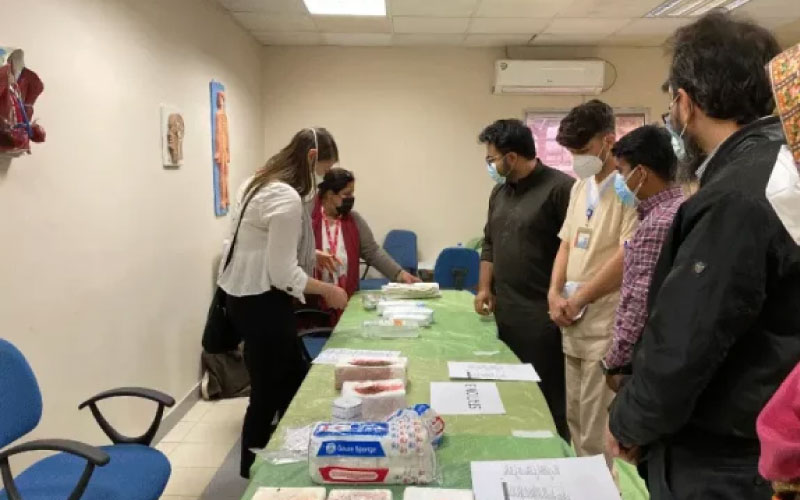EMERGENCY DEPARTMENT IN COLLABORATION WITH THE EMORY UNIVERSITY CONDUCTS THE SECOND CAT-C PROGRAM AT KORANGI CAMPUS
-
by
admin
- No Comments on EMERGENCY DEPARTMENT IN COLLABORATION WITH THE EMORY UNIVERSITY CONDUCTS THE SECOND CAT-C PROGRAM AT KORANGI CAMPUS
The Emergency Department conducted the second edition of the Collaborative Advanced Trauma Care (CAT-C) program in January- February 2022. The first course was conducted at the Indus Hospital, Korangi campus in September 2019. CAT-C was conducted in collaboration with the Global Emergency Medicine section of Emory University and Grady Memorial Hospital, Atlanta, Georgia, USA. The second program took place at the Korangi Campus; Badin; and Muzaffargarh campuses.
The program aimed to provide inter-professional training and develop trauma teams to reduce morbidity and mortality in trauma-related cases. The program took place over a span of 10 days; 3 days in Karachi, one day in Badin, and three days in Muzaffargarh.
Both nurses and doctors attended the program. The latter were divided into small groups and overlooked by a mix of local and international faculty facilitators. They were encouraged to work in teams to manage various trauma-related cases. Medical officers and residents from Emergency Medicine, Urology, Orthopedics, General Surgery, Anesthesia, and Emergency Resuscitation Nurses attended the program.
The trainers’ team included: Dr. Stephanie Busby, Trauma surgery and critical care medicine, Assistant professor Emory University; Emily Russell, RN, BSN, TCRN, Emergency Medicine and Trauma Grady Hospital; Dr. Anna Yaffee, Assistant professor and Director of global health in emergency medicine section, department of Emergency Medicine Emory University.
At the end of the program, in order to assess their knowledge, all the candidates sat for an exam. The successful candidates were handed certificates and special CAT-C pins at the closing ceremony.




